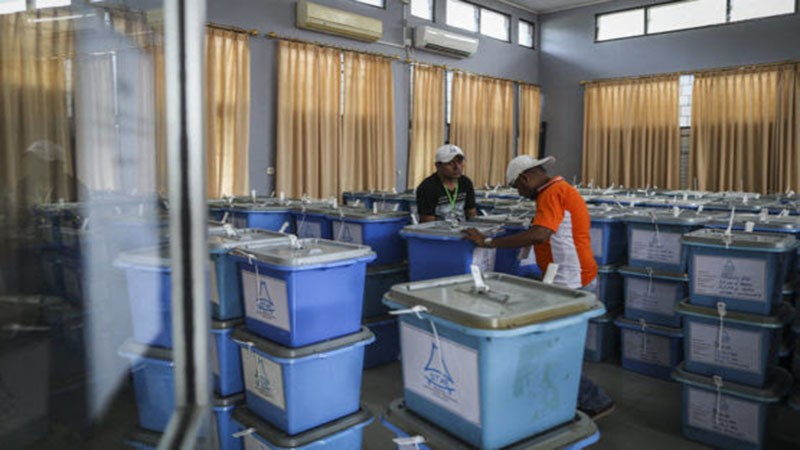MEDIAONETIMOR-East Timor goes to the polls on today to elect a new president. After this small and still impoverished country’s profoundly troubled history, the election should, happily, be relatively unproblematic.
The elections have so far generated limited conflict, with a Fretilin and Democratic Party (PD) riot in Dili’s outer west leaving some homes burned. Election rallies have otherwise been noisy but not dangerous.
Competition for the presidency is strong, in some areas fierce, and the outcome will have reverberations for the country’s future beyond the president’s largely ceremonial role. After being all but guaranteed that the Fretilin presidential candidate, Francisco “Lu-Olo” Gueterres, would win the presidency outright in the first electoral round, there is now an even chance the vote will go to a run-off round.
Lu-Olo has been supported for the presidency by the founder of co-governing party CNRT, Xanana Gusmao. Many in CNRT have been unhappy with Gusmao dismissing his own party member’s candidacy for the presidency.
Gusmao’s support for Lu-Olo follows his support two years ago for Fretilin’s Rui de Araujo as prime minister, when Gusmao stepped down from the post. Gusmao supporting a Fretilin candidate for the presidency after the prime ministership has added insult to injury for the CNRT membership, a consequence of which is that some CNRT members and supporters might stay away from the non-compulsory vote.
Lu-Olo’s main rival is PD candidate Antonio da Conceicao, who is also supported by the Popular Liberation Party (PLP) of President Taur Matan Ruak. Working against Conceicao, PD’s key founder, Fernando “Lasama” de Araujo, died of natural causes two years ago, so PD’s support base may have fallen a little.
Conceicao could, however, be a lightning rod for wider anti-Fretilin sentiment. The PLP, meanwhile, has been running a strong anti-corruption campaign and, without regular public opinion polling, seems to be receiving some support for that.
The real question will be, after CNRT joined with Fretilin to form a government of national unity, if PD and PLP can form a continuing alliance, and perhaps have smaller parties such as Fretilin break-away Mudanca gravitate around them. If so, while it is expected that Lu-Olo will be elected president if not immediately then in the run-off at least the country will have a viable opposition.
A viable opposition will be necessary if East Timor is not to become a dominant-party state, in which the outcomes of elections are effectively known in advance. Political competition, though in some respects divisive, will be critical if the country is to maintain a sense of public accountability.
With such accountability, East Timor may avoid the myriad problems, such as corruption and financial mismanagement, that have ultimately beset so many other newly independent nations. Without such accountability, such problems, which have already surfaced, may become worse.
*Damen Kingsbury is Deakin University’s Professor of International Politics. He is co-ordinator of the Australia East Timor Election Observer Mission to the presidential and parliamentary elections. (ETAN)





Discussion about this post